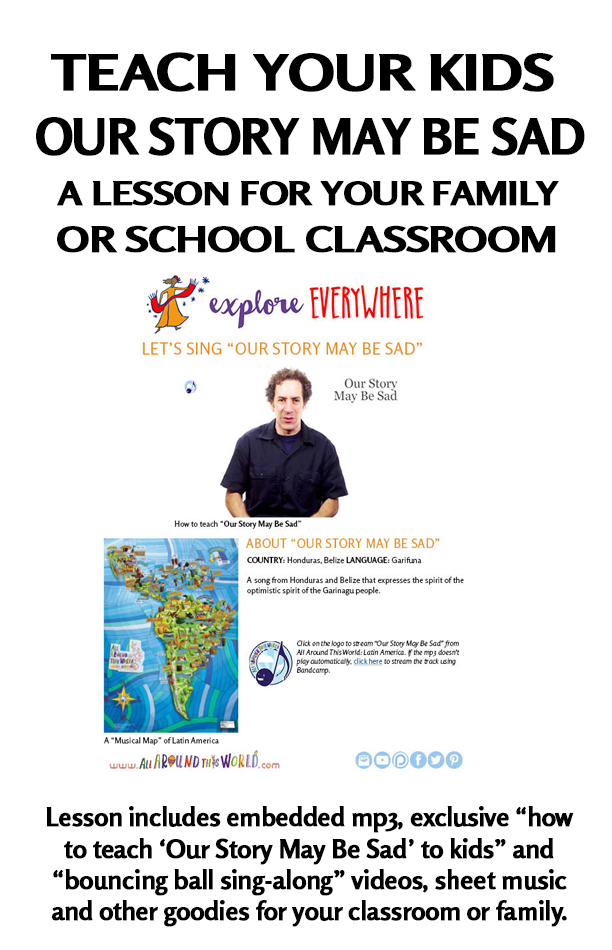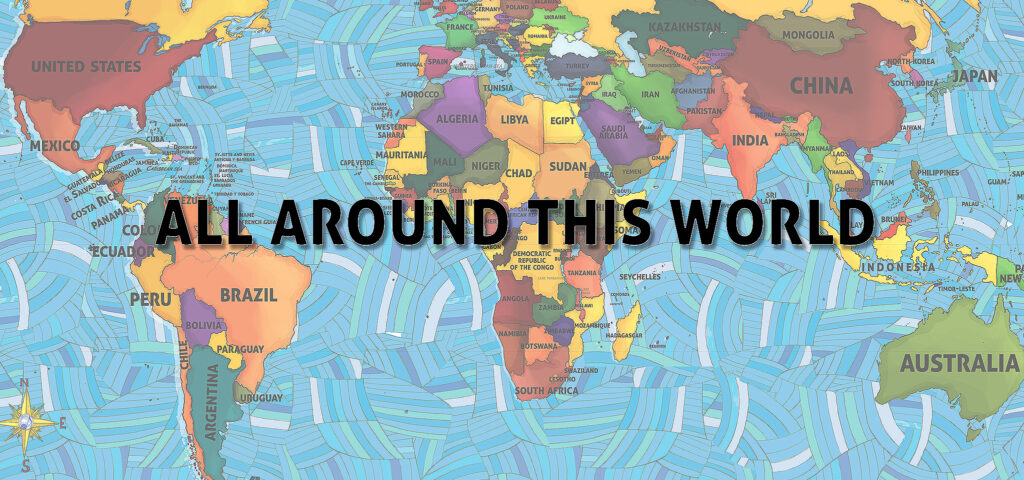
This song comes from the Garifuna of Honduras and Belize, derived from the opening lines of an epic story performed as a dance by a couple. The liner notes of “The Black Caribs of Honduras,” the Smithsonian Folkways recording which first introduced All Around This World to this song, say “The words of this particular song refer to a man who thinks himself better than anyone. The woman laughs at him and tells him it doesn’t matter how high the floors are from the ground. One day they’ll fall and the crows will take care of everything.” (The song is listed there as “Punta.”) Our version takes just the first couple lines of the introduction, originally translated as, “Sit down see the enjoyment, Won’t kill me misery,” and twists it into a Garifuna song for kids by taking that to imply that the tale in the story may be a sad one, but that we can enjoy the telling of it anyway. A further implication is that though there may be many struggles in the world, we may find a way to survive them with our ability to enjoy life intact, a sentiment that is common throughout the Caribbean.
“Black Carib” is an outdated British colonial term used to describe people who are now known as the Garifuna. The Garifuna are descendants of Nigerian slaves whose transport ship wrecked in 1675 on the small island of Bequia, just south of St. Vincent in the Caribbean. The indigenous Carib people took the survivors to St. Vincent where they treated them harshly. The Africans rebelled, and eventually took refuse in the hills. When the British took St. Vincent in 1796 they viewed the Garifuna as a threat and exiled them to an island off the coast of Honduras. Spanish settlers eventually employed the Garifuna, bringing them to mainland and eventually allowing them to seed communities up and down Central America’s Caribbean coast.
Today the Garifuna mainly live in Honduras, Belize, Guatemala and Nicaragua and have a language, culture and customs that are distinct from those of their Central American neighbors. Our Garifuna song is in the community’s language, a mix of Arawak and Carib, with some words from English, French and Spanish. Look at a video about an album by the wonderful Garifuna women’s singing group, Umalali, for a sense of Garifuna dress and Afro-Caribbean music.
Country: Honduras, Belize
Language: Garifuna
Genre on CD: Punta
Instruments on CD: Garifuna drums (primero and segunda)
LYRICS OF ALL AROUND THIS WORLD VERSION
Yunruhuma ya arihabei habuidunmenia
Mafarulubadina lamise
Yunruhuma ya arihabei habuidunmenia
Our story may be sad, but we’ll laugh anyway.
(Dance, dance, dance, ma lubuidun, Dance, dance, dance, habinahan . . . )
Garifuna music in Belize by the Lebeha drummers





Comments are closed.